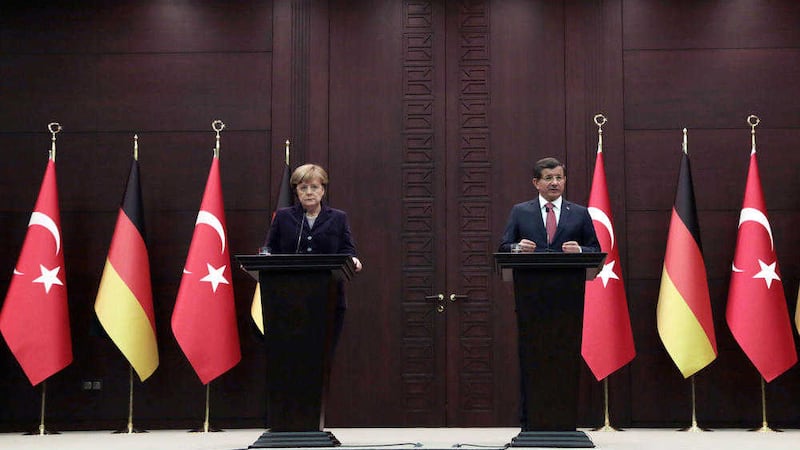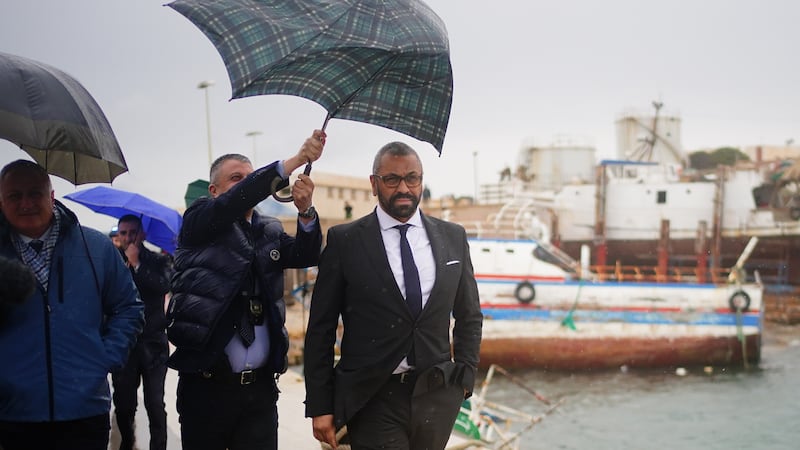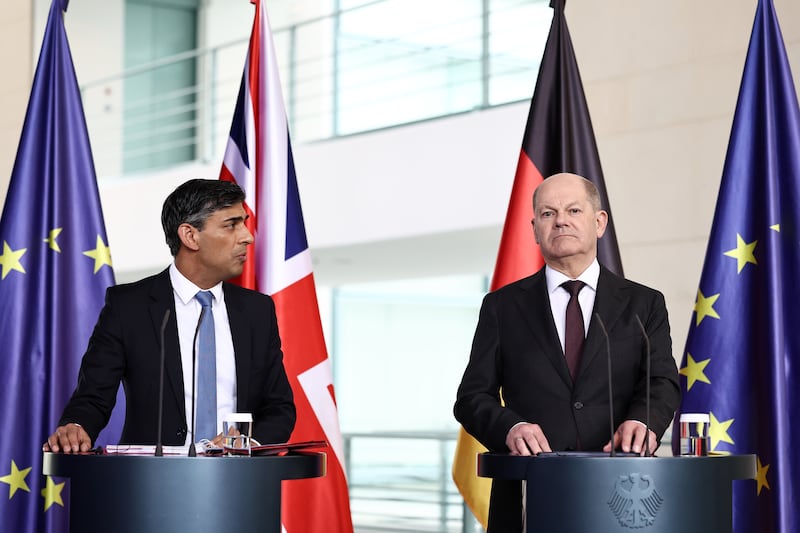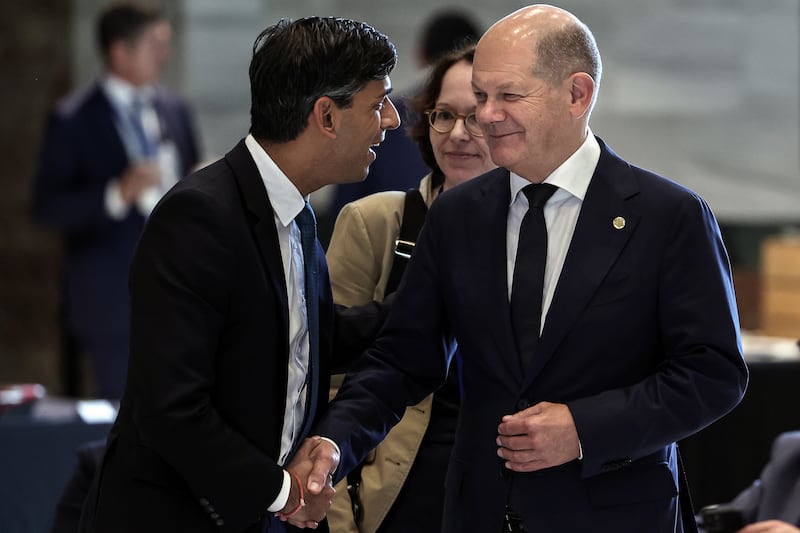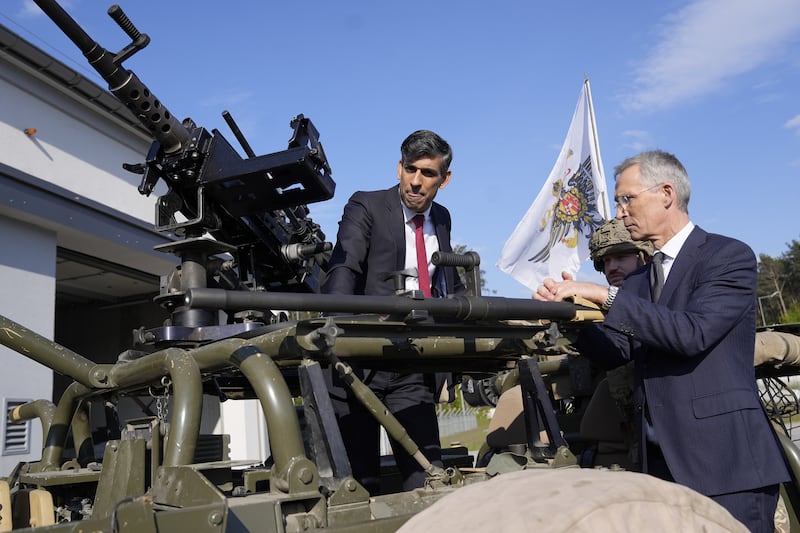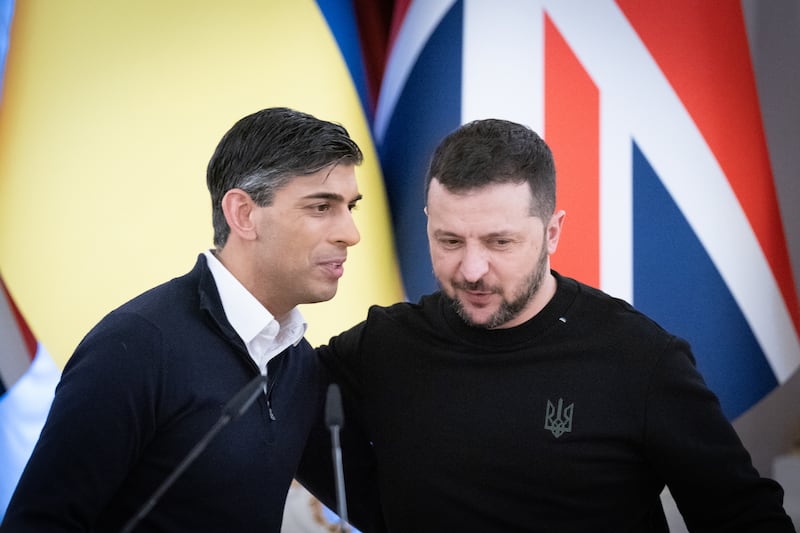TURKEY and Germany have agreed a set of measures to deal with the Syrian refugee crisis, including a joint diplomatic initiative aiming to halt attacks against Syria's largest city.
German chancellor Angela Merkel said after talks with Turkish prime minister Ahmet Davutoglu that she is "not just appalled but horrified" by the suffering caused by Russian bombing in Syria.
Ms Merkel said Turkey and Germany will push at the United Nations for everyone to keep to a UN resolution passed in December that calls on all sides to halt attacks on the civilian population.
She said: "We have been, in the past few days, not just appalled but horrified by what has been caused in the way of human suffering for tens of thousands of people by bombing - primarily from the Russian side.
"Under such circumstances, it's hard for peace talks to take place, and so this situation must be brought to an end quickly."
Mr Davutoglu said the city of Aleppo "is de facto under siege. We are on the verge of a new human tragedy".
Turkey is facing pressure from the EU to open its border to up to 35,000 Syrians who have massed along the frontier in the past few days fleeing an onslaught by government forces.
Ms Merkel was in Ankara for talks on how to reduce the influx of migrants into Europe.
Turkey, a key country on the route to Europe, is central to her diplomatic efforts to reduce the flow. Germany saw an unprecedented 1.1 million asylum seekers arrive last year, many of them fleeing the conflicts in Syria, Iraq and Afghanistan.
Mr Davutoglu said the two countries' security forces would increase efforts to thwart illegal migration and combat smuggling groups.
The two leaders will also try to get Nato involved in the refugee issue, Mr Davutoglu said. He said they will seek the use of Nato's observation capabilities at the border with Syria and in the Aegean Sea.
He also said the two countries' aid organisations will co-operate in providing aid to the Syrians at the border.
Turkey, already home to 2.5 million Syrian refugees, says it has reached its capacity to absorb refugees but has indicated that it will continue to provide refuge.
Anakara agreed in November to fight smuggling networks and help curb irregular migration. In return, the EU has pledged 3 billion euros (£2.3 billion) to help improve the condition of refugees, and to grant political concessions to Turkey, including an easing of visa restrictions and the fast-tracking of its EU membership process.
Turkey has since started to require Syrians arriving from third countries to apply for visas, in a bid to exclude those who aim to continue on to Greece.
Turkey has also agreed to grant work permits to Syrians as an incentive for them to stay in Turkey, and has announced plans to increase coastguard capabilities and designate human smuggling as a form of organised crime - which would bring stiffer punishments.
